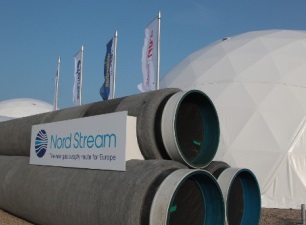As part of the visit, a working meeting took place in Paris between Alexey Miller and Jean-Pierre Jouyet, Chief of Staff of the President of France.
It was pointed out that against the declining domestic production in Europe, the demand for gas imports would grow. Russia, as a reliable energy supplier to the European economy, will be able to secure gas export to the extent required.
In this context the parties addressed the issue of developing gas transmission routes for Russian gas supply to Europe. It was highlighted that the Nord Stream gas pipeline was running smoothly. The parties noted that the Nord Stream 2 project would strongly boost the reliability of gas supplies to Europe.
The meeting was focused on the preparations for the Nord Stream 2 gas pipeline construction.
ENGIE is a prominent European energy company focused on power generation as well as natural gas exploration, production, processing and marketing projects.
The cooperation between Gazprom and ENGIE in the gas supply area started back in 1975. In 2006 Gazprom and ENGIE signed the Agreement to extend all the three existing contracts for Russian natural gas deliveries to France till 2030. In addition, the parties agreed on additional gas supplies to ENGIE through Nord Stream.
Running from Russia to Germany under the Baltic Sea, Nord Stream is an export gas pipeline with an annual capacity of 55 billion cubic meters. Nord Stream AG is a joint venture (Gazprom holds 51 per cent, Wintershall and E.ON – 15.5 per cent each, Gasunie and ENGIE – 9 per cent each) operating the project.
On September 4, 2015 Gazprom, E.ON, Shell, OMV, BASF and ENGIE inked the Shareholders Agreement to construct the Nord Stream 2 gas pipeline with the capacity of 55 billion cubic meters of gas a year from Russia to Germany across the Baltic Sea.
In 2014 Gazprom supplied France with 7.6 billion cubic meters of gas.
27 Декабря 2025 | суббота | 12:38


